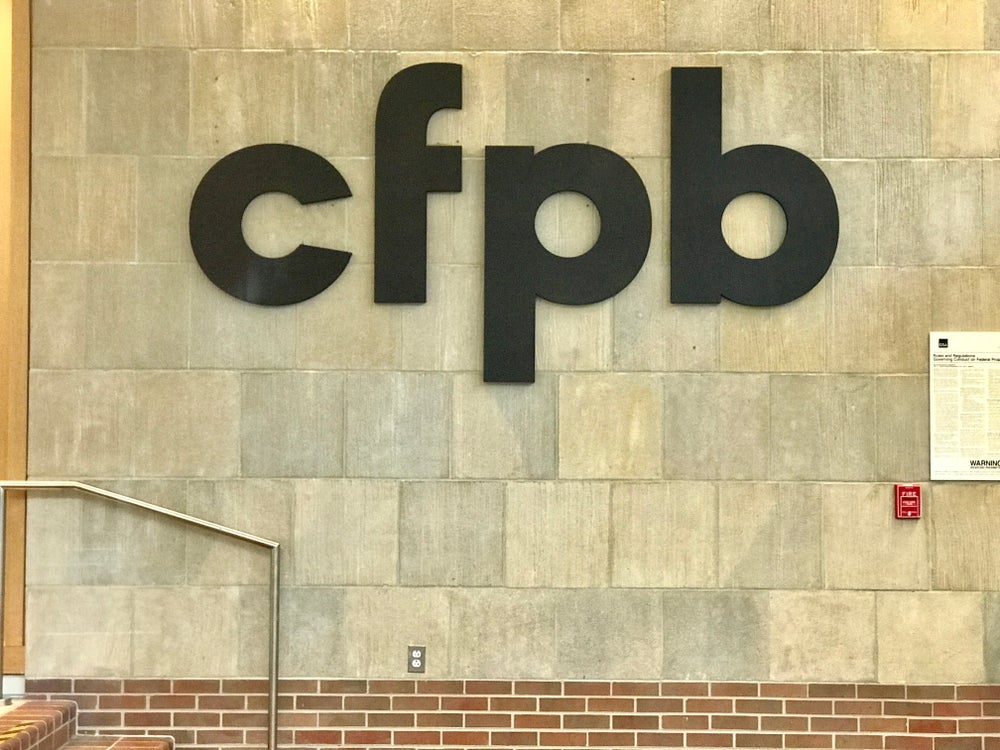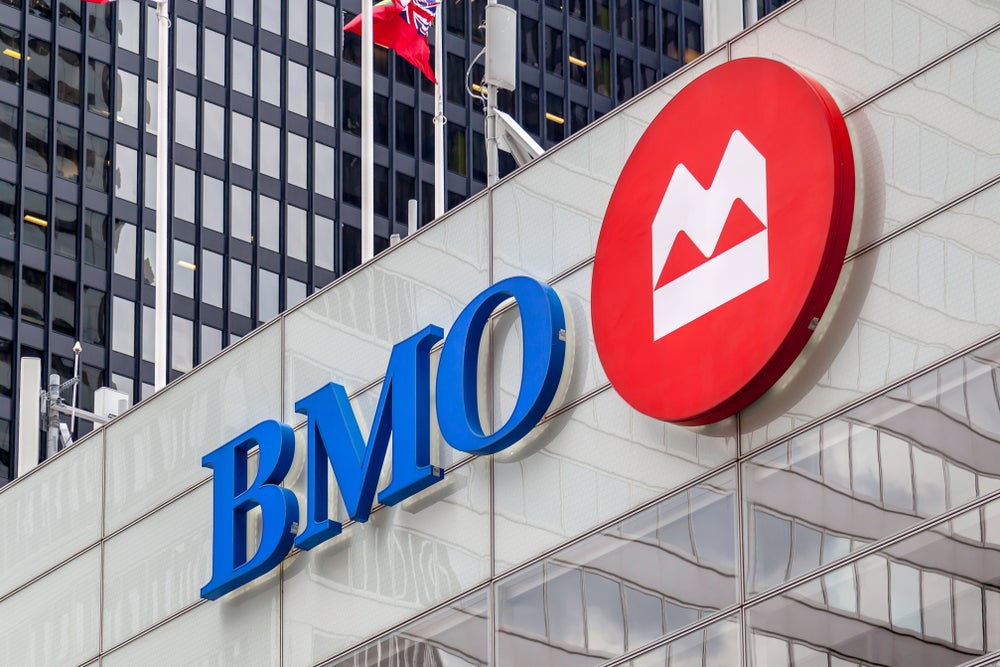
Banking & Payments DECODED
Previous edition: 08 Apr 2024
Share article
Get the full version straight to your inbox.
Exclusive access to our best-in-class data & intelligence
Subscribe now
GSB Capital: private credit and its potential for growth
Banks are focusing a lot of attention on how they will improve speed, affordability, and longevity of their investing platform for their clients. Private credit has grown in importance as a source of capital. Nevertheless, it is sometimes overlooked how important lending is in private banking and how it is evolving alongside other areas. GSB Capital sees the potential in this.

The Chartered Institute for Securities & Investment (CISI) stated earlier this year that GSB (GSB) Capital, an independent wealth manager with headquarters in Dubai, had attained CISI Chartered status.
As a result, GSB became the first company both internationally and in the Middle East to be recognised in this way.
GSB was established by Ross and Alison Whatnall, and it debuted in the United Arab Emirates in April 2021.
Since then, GSB has increased the breadth of financial services and wealth management alternatives it offers clients who are seeking the most effective possible investment, financial planning, private banking, lending, and corporate finance expertise.
Ryan Dixon, co-head of GSB Private, opens the conversation by explaining his role at GSB and how ‘‘it is always working with high net worth and sophisticated individuals to make sure that they are making the most of their personal and corporate balance sheet.”
He also further points out GSB Capital services: “Our remit here is for us was to build a lending team covering all things real estate. Ranging from main residence, commercial, industrial, bridging finance, development, and then also a corporate finance team. So, helping businesses in the UK find their capital to grow their businesses exit by M&A deals, and to be more efficient with their capital structures.
‘‘Our background is we have always worked with high net worths and ultra-high net worth clients, predominantly UK based, but we have got a big client book now in in the Middle East. And the role is to go and try and find solutions to their biggest problems or the biggest opportunities."

GSB transparency
With similar roles, Jon Urquhart, another co-head of GSB Private, elaborates to emphasise that one of GSB's distinguishing features is its expertise.
"We have structured the business to ensure that we have people with the right qualifications and experience to do that be multi-jurisdictional, whether it's on the lending side, financial planning, long-term financial planning, and partnering on the tax planning side as well,” he claims.
Urquhart believes that by leveraging their professional networks, they can meet all their clients' needs while remaining “ethical, transparent, and collaborative” with their own professional advisers, which is one of the reasons that clients choose them over other firms.
Dixon continues, adding that "being regulated in both yet by the FCA and DIFC" is an additional benefit. In fact, that gives customers a reason to return.
GSB makes it possible because “people who are moving from the UK to Dubai, for whatever reason, whether it is a business exit, new role, or a new job, or people who have been to Dubai for five or 10 years have done very well out there financially, and then moving back to the UK as an employee or to start new businesses, hold on to being a specialist in that corridor”.
He states: “We have set out all those solutions, and we will keep growing out what we are going to do in the future and making sure that we can add more solutions to what our client might need.”
HNWI lending regulations at GSB
When seeking a loan, high-net-worth individuals (HNWIs) usually deal with a wealth manager or private banker who specialises in high-net-worth financing.
The borrower's financial status, including their income, net worth, and creditworthiness, will be evaluated by the private banker, who will also collaborate with them to ascertain their financing requirements.
GSB Private works with a restricted group of private banks that will provide HNW mortgages on a 'dry' basis, with no additional assets necessary.
Looking at the requirements of a high-net-worth client at GSB Capital with an income over £300,000 ($378, 858) and assets over £3m are those that require a broader scope of lenders. They typically work with institutional lenders and sophisticated private banks, with a global focus.
With a background in banking, the GSB team uses up to 500 different banks and funders for lending. The aim of this effort is to improve the services provided to clients in areas such as financing, long-term inheritance tax preparation, and wealth planning.
GSB also offers wealth management, and tax planning to high-net-worth clients, providing a comprehensive service. They are partnering with family offices in the UK and Dubai, run by experienced professionals, to leverage their capital pools for potential lending transactions and business investments.

Why are HNW clients lending at GSB?
High-net-worth lending operates differently than ordinary lending since the borrower and lender have different demands and objectives in this segment.
Urquhart states how lending in the high-net-worth sector focuses more on generating or seizing chances.
“Using a client's existing asset base or profile, to gain access to liquidity or capital that they may have on a balance sheet,” thus, when describing what is lending to high net worth individuals in wealth management, "it is about looking at effective ways that we can release that capital liquidity to allow a client to attain opportunities, whether that be acquiring real estate, investments into different businesses, or other assets of that nature."
Providing high net worth individuals with a clearer understanding of their company's profitability is one of the purposes as a client of GSB.
According to Dixon, one scenario to consider involves business owners in the UK who may be earning a profit of £1m. It is possible that entrepreneurs may be contemplating alternate revenue streams that are more tax-efficient to pursue.
Despite asking for a £2m mortgage, the individual might have earnings between £40,000 and £50,000 on their tax return. This is the point at which GSB assists HNWI in taking a closer look at those profits.
Dixon says: “With the high-net-worth exemption, it just means that we can look at different forms to get income out. If you've got a business that earns a million pounds a year makes a profit a million pounds a year. But on a tax return, they do not need to take that income, they would not be able to take that to a standard bank. But because they qualify as a high net worth, we can look at those businesses, the retained profits, and other assets, and be able to get them higher-level mortgages or properties. It gives us a lot more scope to go out and find solutions and work with more sophisticated banks.”
Regarding another incentive because clients take out loans, Urquhart notes that “it is for clients that want to enhance their current portfolio. Anything that we tend to look at is a client wanting to grow themselves. Whether that is growing by property to plan for future generations, or generational wealth planning, it is all about what and where is the opportunity. And is it something that is viable for them, whether it be now or for later”.
Lending process & disadvantages
GSB works with a variety of banks and specialist lenders to secure the best terms and prices.
The client's motivations influence the transaction process. An example being if the client wishes to close within 10 days, GSB will employ a bridging facility, or a bank may be used.
‘‘We like to understand who we are working with, what their motivations are, and their journey to wealth,’’ clarifies Urquhart.
Consultants collaborate closely with the customer to give solutions, including restructuring the deadline and contacting expert advisers. GSB purpose is to determine the optimal way to do the deal.
The affordability aspect with GSB is a client's financial status is broad, including assets, niches, and particular items. The process involves monetising these assets to provide liquidity within a specific time frame for servicing requirements.
It is then followed by cooperating with banks to demonstrate clients' access to liquidity, including salaries, dividends, loan balances, property assets, commercial and residential investments, and stock holdings.
Urquhart states: “It is key to make sure you work with the right banks to understand the requirements of the client individually. So, you have got some banks that are great with entrepreneurs, and some are great with early trading professionals. It is just about us working with the client, and then knowing through our own internal network who is best placed to assist, and then putting the facility together with the support of set bank.”
Dixon moves on to provide an illustration of how banks control property charges as long as payments are made. If a property is in default, it can be repossessed, and in the worst-case scenario, the property is taken back.
However, if interest rates increase, a high-liquidity buy-to-let portfolio may lead to a monthly deficit, causing people to sell properties or rebalance. This poses a disadvantageous situation, especially after 10 years of low interest rates. It is important for private clients to take advice from banks on appropriate structures, loan to value amounts, and plans to hedge against future rates or cope with lower leverage.
Both partners emphasise the importance of constant communication, reviews, and due diligence through the process.
Financial experts should not only facilitate transactions, but also shield their clients with advice and changes in circumstances. Regular communication with clients, reading financial reviews, and understanding their lives are all necessary for effective financial transactions.
GSB forecast
Large amounts of debt have been repaid for many banks over the past few years, despite the fact that lending to wealthy individuals has decreased due to the increase in interest rates over the past year.
In relation to their goals, loan hasn't always been as effective as they had hoped.
Dixon predicts how, as interest rates approach 4% or 3% on a five-year fixed term, consumers will reconsider it. Interest rates are also predicted to fall by the end of the year or the beginning of the next, with the election taking place in January, inflation falling, and the mortgage interest hurdle rate reducing.
‘‘Clients will be coming back in and going, ‘well actually, if it cost me 3% to borrow a million pounds, can I get a better return on those million pounds elsewhere? And the answer is that is hopefully yes.
“And that's where GSB comes in to build portfolios and build alternative investment assets. We can look to build property portfolios for that and see business investments. The last year has been a tricky market, debt costs have been higher. But with that coming off, I think a lot of high net worths will come back in and ask for debt and re leverage against properties,” he says.
GSB expectations in 2024?
In conclusion, Dixon mentions: ‘‘We are discussing with a few people now and the regulator to make sure we have got the right permissions to really take the business forward. And that would mean growing businesses to a much higher level, transact in larger numbers and dealing bigger clients in the UK. We are also building the team here and have got a few advisers joining us in the next couple of weeks.’’
‘‘There are some really exciting people in some of the networks, and what they can offer coming in. And again, in the UK, Jon and I want to get stuck into local charities. Stuff that kind of really focuses on inclusion, diversity. There is lots of good stuff happening. It is not all about work, you need to kind of make sure that you are doing the right thing too and that is what GSB is doing. The stuff we put out there is really core to our business, and we need to give back.’’
In Dubai, GSB is a well-known brand for its impact-based programmes, which include helping the community and youth development. They intend to increase the range of products they offer in the financial industry.
Moreover, the Central Bank of Ireland (CBI) has granted financial services company GSB permission to establish an office in Ireland and begin providing services to customers throughout Europe.
GSB Capital Ireland will provide a variety of advisory services pertaining to investments, insurance, and pensions after approval.
Additionally, GSB now has the ability to passport around the EU due to the license. It looks like the firm has not stopped in increasing its footprint across the globe.
Latest news

Americans are paying upfront fees seeking to lower interest rates on mortgages: CFPB
An increasing number of US borrowers have paid “discount points” upfront as overall interest rates rose. The percentage of homebuyers paying discount points roughly doubled from 2021 to 2023. The increase was even greater among borrowers with lower credit scores. Discount points may provide advantages to some borrowers but the financial trade-offs are complex. The CFPB is monitoring these increases and potential risks to consumers.“Higher interest rates on mortgages have led borrowers to pay upfront fees to lower their interest payments,” said CFPB Director Rohit Chopra. “The heavy use of ‘discount points’ suggests that many borrowers are uncertain about their ability to refinance in the future.”Discount points are a one-time fee paid at closing to a lender in exchange for a lower interest rate. Paying one discount point is the equivalent of paying a fee of 1% of the loan amount. But discount points have no fixed value in terms of the change in interest rate. Most borrowers only benefit from discount points if they keep their mortgage long enough that the cumulative monthly savings from the reduced interest rate outweigh the upfront costs.

Ant Group launches International Consumer Friendly Zones in China
Ant Group have launched a nation-wide programme to build International Consumer Friendly Zones across major Chinese tourist and commercial cities, with the support of relevant authorities and local governments. Working with local merchants, tourism sites and commercial districts, the programme aims to enhance international visitors' experience and drive business for local merchants.

Visa brings convenience and control to booming subscription economy
Visa has launched Subscription Manager, a new, all-in-one service for financial institutions to provide Visa cardholders with a simple, convenient way to track their subscriptions, all from the palm of their hands.

Tranglo expands instant cross-border payments
Fintech Tranglo has announced an expansion of its cross-border payment network, enabling instant and direct transfers to more than 30 eWallets.

Crédit Agricole and Worldline unveil CAWL
Crédit Agricole and Worldline have unveiled their joint venture CAWL. CAWL is a new payment services brand for merchants in France and embodies the combination of Worldline's technological experience, offerings and services with Crédit Agricole Group’s commercial performance and distribution power.

Steward Partners builds over $1bn in new client assets
In January and February, a plethora of new advisers and teams joined Steward Partners, a full-service, employee-owned, independent financial services company, contributing more than $1bn in assets under management.

BMO updates framework for sustainable bonds
BMO has improved the current green and social use of proceeds criteria in its Sustainable Bond Framework (previously known as the "BMO Sustainable Financing Framework"), which was initially introduced in 2019.

Card payments in Malaysia to surpass $84 billion in 2024
The Malaysian card payments market is expected to grow by 10.2% to reach $84.9bn in 2024, supported by constant consumer shift towards non-cash payments, says GlobalData, a leading data and analytics company.
In our previous edition

Banking & Payments Decoded
Tap on Any Device technology: the next wave of payment innovation
05 Apr 2024

Banking & Payments Decoded
Will open banking transform the future of finance?
04 Apr 2024

Banking & Payments Decoded
New paths, new payments, new paradigms
03 Apr 2024
Newsletters in other sectors
Aerospace, Defence & Security
Banking & Payments
Travel and Tourism
Search companies, themes, reports, as well as actionable data & insights spanning 22 global industries
Access more premium companies when you subscribe to Explorer


